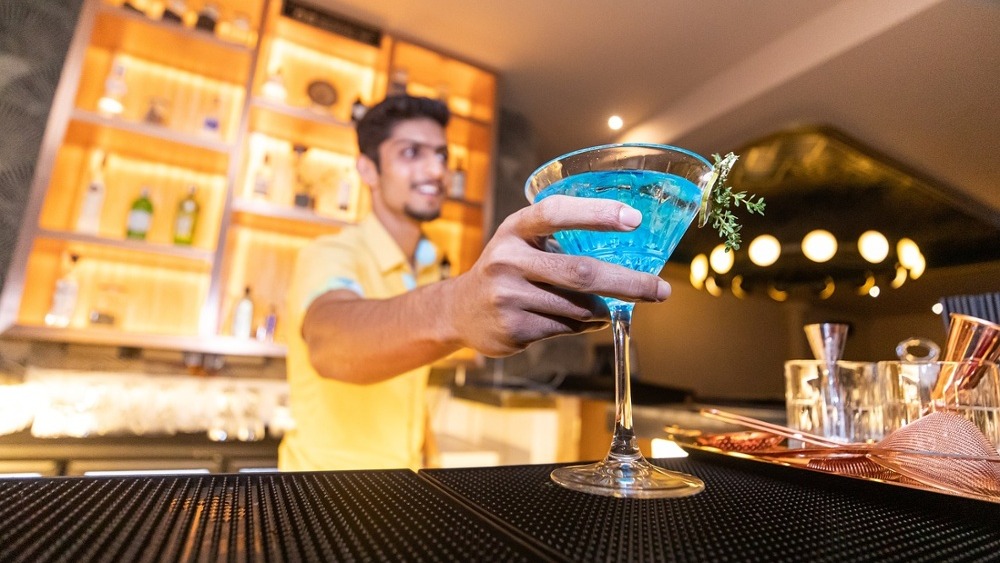Use these tips to prevent and resolve conflicts that arise when serving alcohol.
In the hospitality industry, effective management of interpersonal relationships is not just an asset; it's a necessity. Ensuring a safe and pleasant environment is especially crucial when alcohol is part of the equation.
Tensions can rise, and conflicts may erupt, but if you're equipped with the right strategies, you can keep situations under control. This article will delve into various problems that may arise while serving alcohol and offer practical approaches for preventing or de-escalating these issues.
What is Alcohol Server Training?
Alcohol Server Training is a form of education aimed at individuals who serve or sell alcoholic beverages. This training is designed to equip servers, bartenders, managers and sometimes even security personnel with the skills and knowledge needed to serve alcohol responsibly and to comply with local, state or national laws and regulations.
This critical training serves as an indispensable foundation for addressing the variety of challenges that can arise in the alcohol service industry, equipping staff with the skills and knowledge to navigate complex scenarios effectively.
Common Situations Requiring Conflict Resolution
Overly Intoxicated Customers
- Prevention: Beyond monitoring consumption, consider implementing a system where bartenders and servers are signaled discreetly to keep tabs on patrons. This could be as simple as a coded message or a digital note in your point-of-sale system. Your training will also educate you on observing signs of intoxication, like slurred speech, decreased motor skills, bloodshot or glassy eyes, a flush face or aggressive behavior, which can help you assess when a patron should be cut off.
- Resolution: If a patron is noticeably intoxicated, approach them privately, if possible, and let them know you won't be able to serve any more alcohol. Offering a non-alcoholic alternative like water or soda can defuse tension. Make arrangements for a taxi or a sober companion to ensure they leave the premises safely.
Unruly Groups
- Prevention: Brief your staff before peak hours to be extra vigilant about monitoring larger groups. Implement a "pace-yourself" policy where serving staff are encouraged to stagger the release of alcohol to the group. Inform the group at the outset about any noise or behavior policies, setting expectations early.
- Resolution: In the event of disruption, select the primary instigators and ask to speak with them away from the group. The goal is to avoid a mob mentality where the group feeds off its own energy. Once isolated, communicate the issue and the changes in behavior you expect, offering a warning before taking drastic measures like eviction.
Harassment or Unwanted Attention
- Prevention: Staff training should involve recognizing the subtleties of harassment, which may include uncomfortable body language or facial expressions from the victim. Well-placed security cameras can also act as a deterrent.
- Resolution: Act swiftly. The quicker the situation is addressed, the less traumatic it is for the victim. Ask the victim discreetly what they'd like to do next. This could involve ejecting the harasser from the establishment or alerting the authorities, depending on the severity of the situation and the wishes of the victim.
Customer-to-Customer Conflicts
- Prevention: Your staff should be trained to read the room effectively. Certain conflicts can be anticipated based on body language, raised voices or antagonistic interactions. Sensible seating arrangements, like not placing rival sports fans next to each other during a big game, can preemptively avoid conflicts.
- Resolution: Intervene early to separate the conflicting parties, taking them to different areas of the establishment if possible. Engage with each party privately to understand the issue and offer solutions. If the situation cannot be resolved peacefully or threatens to escalate, consult your security team or involve the police.
Altercations Between Staff and Customers
- Prevention: Training should extend beyond customer service basics to include specifics on conflict de-escalation, effective communication, and understanding common triggers for altercations. This training should be updated and revisited regularly.
- Resolution: The involved staff member should be removed from the floor temporarily to avoid escalating the situation. A manager or senior staff should approach the customer to discuss the issue. Decisions such as offering a discount, expelling the customer or involving security should be weighed carefully, emphasizing the safety and comfort of all patrons and staff.
Refusal to Show ID
- Prevention: Clearly display a policy stating that ID will be checked for those who appear under a certain age. Make this a routine process to normalize it for your patrons.
- Resolution: If a customer refuses to show ID, calmly but firmly explain that it's a legal requirement for you to verify age before serving alcohol. If the individual continues to refuse, politely inform them that you can only serve them alcohol with identification.
Complaints About Service or Product
- Prevention: Train your staff to provide excellent customer service and make quality checks on products like food and drink. Proper training can go a long way in setting a high standard for customer experience.
- Resolution: When a customer complains, listen attentively without interrupting. Apologize for the inconvenience and ask what can be done to make things right. This could be a replacement refund or an alternative resolution the customer suggests. The key is to handle the complaint gracefully while abiding by your establishment's policies.
Misunderstanding Over Bills
- Prevention: Ensure that all prices are clearly marked on menus and that any specials or promotions are well-communicated to avoid confusion.
- Resolution: If a customer contests the bill, go through each item with them calmly and professionally. If an error is found, correct it promptly. If the bill is accurate, but the customer is still unhappy, you may need to consider a compromise that suits both parties without compromising your establishment's policies.
Violation of Dress Code or Conduct Policies
- Prevention: Clearly display your dress code and conduct policies in the establishment and on your website. Make sure staff are well-versed in these guidelines.
- Resolution: If someone violates these policies, approach them privately and inform them of the infringement. Give them options for how they can comply, whether by removing a hat or switching to a quieter tone of conversation. If they refuse to comply, you may have to ask them to leave, prioritizing the comfort and safety of other patrons.
Each scenario requires tact, professionalism and a solid understanding of human behavior and the law. Prevention is often the best approach, but when conflicts do arise, practical resolution skills become crucial. These can be honed through experience but are most effectively acquired through formal training.
If you're in the alcohol service industry, boost your knowledge with one of Userve's courses for alcohol servers. This training is essential to stay updated on best practices for safety and conflict resolution, benefiting both your business and your patrons. Ready to take the next step in enhancing your hospitality skills? Contact us today to enroll in one of Userve's comprehensive courses.

